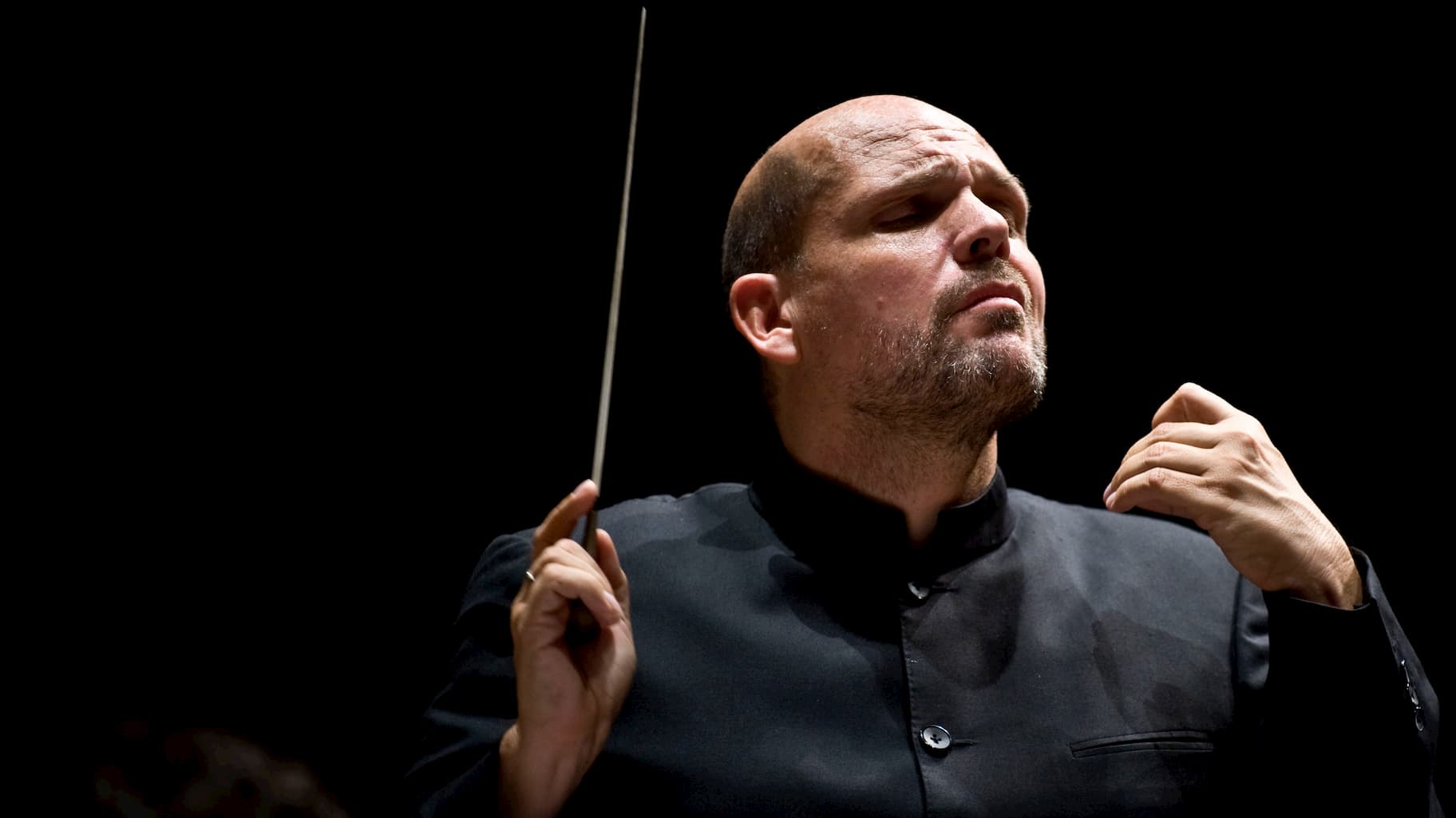Jaap van Zweden conducts Tchaikovsky’s Sixth Symphony
Shostakovich’s Symphony No. 9 and Tchaikovsky’s tragic “Pathétique”

Under the baton of Jaap van Zweden, the Concertgebouw Orchestra performs Shostakovich’s wayward Ninth and Tchaikovsky’s emotionally charged Sixth Symphony, “Pathétique”.
The “Pathétique” is widely regarded as the peak of Tchaikovsky's symphonic oeuvre.
Concert programme
-
Dmitri Shostakovich
Symphony No. 9
-
-- interval --
-
Pyotr Tchaikovsky
Symphony No. 6 'Pathétique'
Performers
About this concert
Jaap van Zweden leads the Royal Concertgebouw Orchestra in two very personal symphonies. Pyotr Tchaikovsky probes the depths of the human soul in his Sixth Symphony. The subtitle “Pathétique” indicates its tragic character, which is particularly moving in the slowly fading final episode. Tchaikovsky himself considered the Sixth his best work, but died shortly after its completion. The “Pathétique” is widely regarded as the peak of Tchaikovsky's symphonic oeuvre.
Half a century later, in 1945, Shostakovich's Ninth Symphony (paired with Tchaikovsky's Fifth during its premiere) angered Stalin. Expected to deliver a grand paean to Soviet victory, Shostakovich surprised friend and foe with a burst of creative frenzy in the form of a short, small-scale and relatively light-hearted symphony. Many feared that the composer would be exiled to Siberia. In 1948 Shostakovich's music was banned; the Ninth was allowed to be performed in the Sovier Union again in 1955 – four years after the Dutch premiere by the Concertgebouw Orchestra under the baton of Otto Klemperer.
Dates and tickets
About this concert
Jaap van Zweden leads the Royal Concertgebouw Orchestra in two very personal symphonies. Pyotr Tchaikovsky probes the depths of the human soul in his Sixth Symphony. The subtitle “Pathétique” indicates its tragic character, which is particularly moving in the slowly fading final episode. Tchaikovsky himself considered the Sixth his best work, but died shortly after its completion. The “Pathétique” is widely regarded as the peak of Tchaikovsky's symphonic oeuvre.
Half a century later, in 1945, Shostakovich's Ninth Symphony (paired with Tchaikovsky's Fifth during its premiere) angered Stalin. Expected to deliver a grand paean to Soviet victory, Shostakovich surprised friend and foe with a burst of creative frenzy in the form of a short, small-scale and relatively light-hearted symphony. Many feared that the composer would be exiled to Siberia. In 1948 Shostakovich's music was banned; the Ninth was allowed to be performed in the Sovier Union again in 1955 – four years after the Dutch premiere by the Concertgebouw Orchestra under the baton of Otto Klemperer.